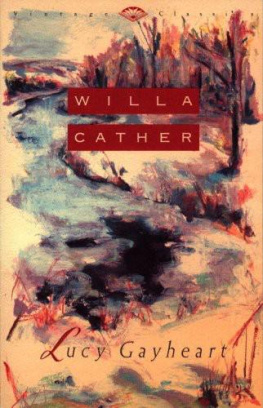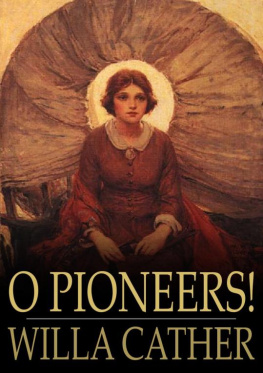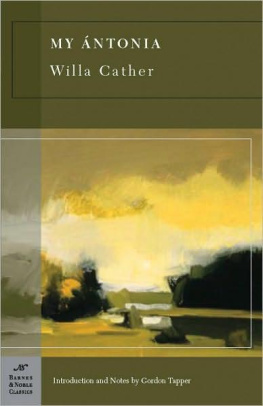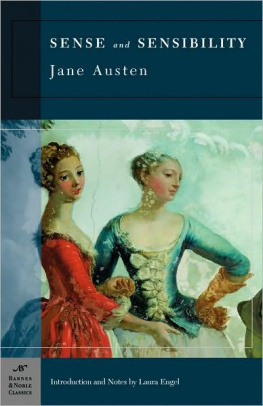
Table of Contents
FROM THE PAGES OF O PIONEERS!
Alexandra often said that if her mother were cast upon a desert island, she would thank God for her deliverance, make a garden, and find something to preserve.
(page 18)
The history of every country begins in the heart of a man or a woman.
(page 35)
There are only two or three human stories, and they go on repeating themselves as fiercely as if they had never happened before ; like the larks in this country, that have been singing the same five notes over for thousands of years.
(page 63)
I like trees because they seem more resigned to the way they have to live than other things do.
(page 78)
From two ears that had grown side by side, the grains of one shot up joyfully into the light, projecting themselves into the future, and the grains from the other lay still in the earth and rotted; and nobody knew why.
(page 83)
When she went out into the dark kitchen to fix her plants for the night, she used to stand by the window and look out at the white fields, or watch the currents of snow whirling over the orchard. She seemed to feel the weight of all the snow that lay down there. The branches had become so hard that they wounded your hand if you but tried to break a twig. And yet, down under the frozen crusts, at the roots of the trees, the secret of life was still safe, warm as the blood in ones heart; and the spring would come again! Oh, it would come again!
(page 104)
There was about Alexandra something of the impervious calm of the fatalist, always disconcerting to very young people, who cannot feel that the heart lives at all unless it is still at the mercy of storms; unless its strings can scream to the touch of pain.
(page 118)
She did not want to die. She wanted to live and dreama hundred years, forever! As long as this sweetness welled up in her heart, as long as her breast could hold this treasure of pain! She felt as the pond must feel when it held the moon like that; when it encircled and swelled with that image of gold.
(page 131)
Maybe its like that with the dead. If they feel anything at all, its the old things, before they were born, that comfort people like the feeling of their own bed does when they are little. (page 148)
There are always dreamers on the frontier.
(page 157)

WILLA CATHER
Wilella Sibert Cather was born on December 7, 1873, in the small Virginia farming community of Winchester. When she was ten years old, her parents moved the family to the prairies of Nebraska, where her father opened a farm mortgage and insurance business. Home-schooled before enrolling in the local high school, Cather had a mind of her own, changing her given name to Willa and adopting a variation of her grandmothers maiden name, Seibert, as her middle name. As a young woman she met Annie Sadilek Pavelka, a schoolmate who would later become the main character in her acclaimed novel My ntonia (1918).
During Cathers studies at the University of Nebraska, she worked as a drama critic to support herself and published her first piece of short fiction, Peter, in a Boston magazine. After graduation, her love of music and intellectual pursuits inspired her to move to Pittsburgh, Pennsylvania, where she edited the family magazine Home Monthly, wrote theater criticism for the Pittsburgh Daily Leader, and taught English and Latin in local high schools. Cathers big break came with the publication of her first short story collection, The Troll Garden (1905). The following year she moved to New York City to work for McClures Magazine as a writer and eventually the magazines managing editor.
Considered one of the great figures of early-twentieth-century American literature, Willa Cather derived her inspiration from the American Midwest, which she considered her home. Never married, she cherished her many friendships, some of which she had maintained since childhood. Her intimate coterie of women writers and artists motivated Cather to produce some of her best work. Sarah Orne Jewett, a successful author from Maine whom Cather had met during her McClures years, inspired her to devote herself full-time to creating literature and to write about her childhood, which she did in several novels of the prairies; one of the best known is O Pioneers! (1913), whose title comes from a poem by Walt Whitman. A critic of the rise of materialism, Cather addressed the social impact of the developing industrial age in A Lost Lady (1923), which was made into a film starring Barbara Stanwyck. For One of Ours (1922), a novel about World War I, she was awarded the Pulitzer Prize in 1923.
In her later years Cather produced some of her most recognized work. For Death Comes for the Archbishop (1927) she won a gold medal from the American Academy of Arts and Letters. In 1933 she received the Prix Femina Americaine for Shadows on the Rock (1931), a collection of short stories. Two years after publishing her last novel, The Best Years (1945), Willa Cather died of a cerebral hemorrhage, on April 24, 1947, in New York City. A collection of short fiction, The Old Beauty and Others (1948), and a literary treatise, On Writing (1949), were published after her death. Among Cathers other accomplishments were honorary doctorate degrees from Columbia, Princeton, and Yale Universities.
THE WORLD OF WILLA CATHER AND O PIONEERS!

| 1638 | Dutch explorer Peter Minuit leads Swedish immigrants to establish the first Swedish colony in Delaware Bay. |
| 1848 | The California Gold Rush stimulates emigration from Scandinavia to the U.S. Midwest. |
| 1855 | Walt Whitman publishes the first edition of Leaves of Grass, a collection of poems he will expand in several editions before his death in 1892; his poem Pioneers! O Pioneers!, which will have an impact on Willa Cather, will be published in his collection Drum Taps in 1865 and incorporated into the 1881-1882 edition of Leaves of Grass. |
| 1862 | The passage of the Homestead Act encourages immigrants to cultivate the U.S. prairies; immigrant settlement in the Midwest increases significantly. |
| 1873 | On December 7 Wilella Cather is born, the eldest of her parents seven children, in Winchester, Virginia, a farming village near the Blue Ridge Mountains. |
| 1877 | Sarah Orne Jewett, who will become one of Cathers mentors , publishes Deephaven, her first collection of stories and sketches, about small-town life in New England. |
| 1883 | The Cathers join Wilellas grandparents and her uncle George in Webster County, Nebraska. |
| 1884 | The Cathers settle in Red Cloud, Nebraska, a railroad town on the prairie, where Cathers father opens a farm mortgage and insurance business. Most of their neighbors are European immigrants. Cather enrolls in Red Cloud High School and meets Annie Sadilek Pavelka, on whom she will base the title character in her novel My |

















